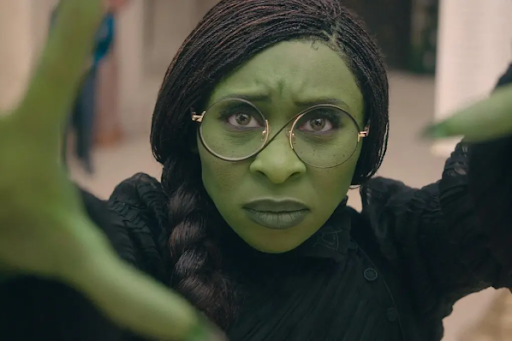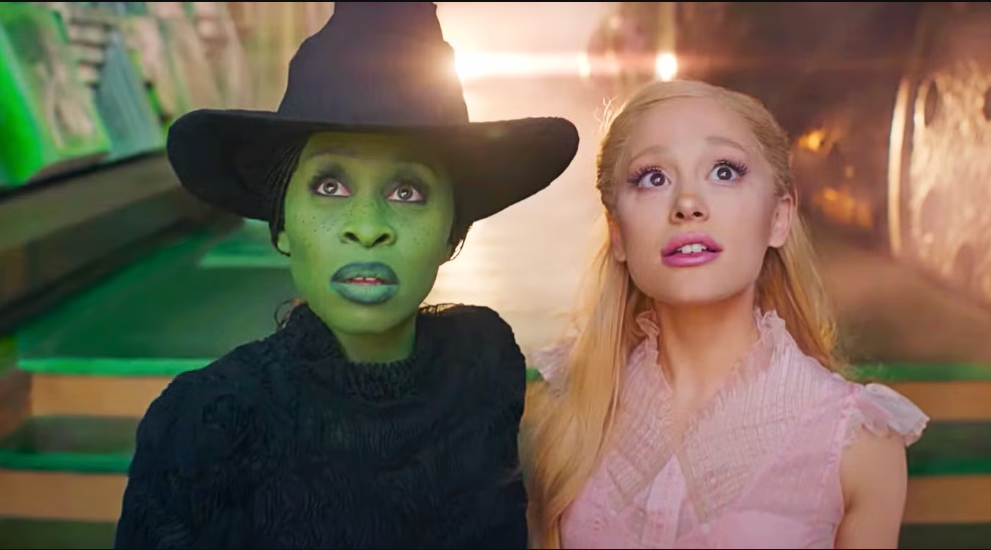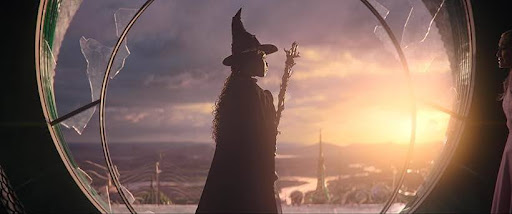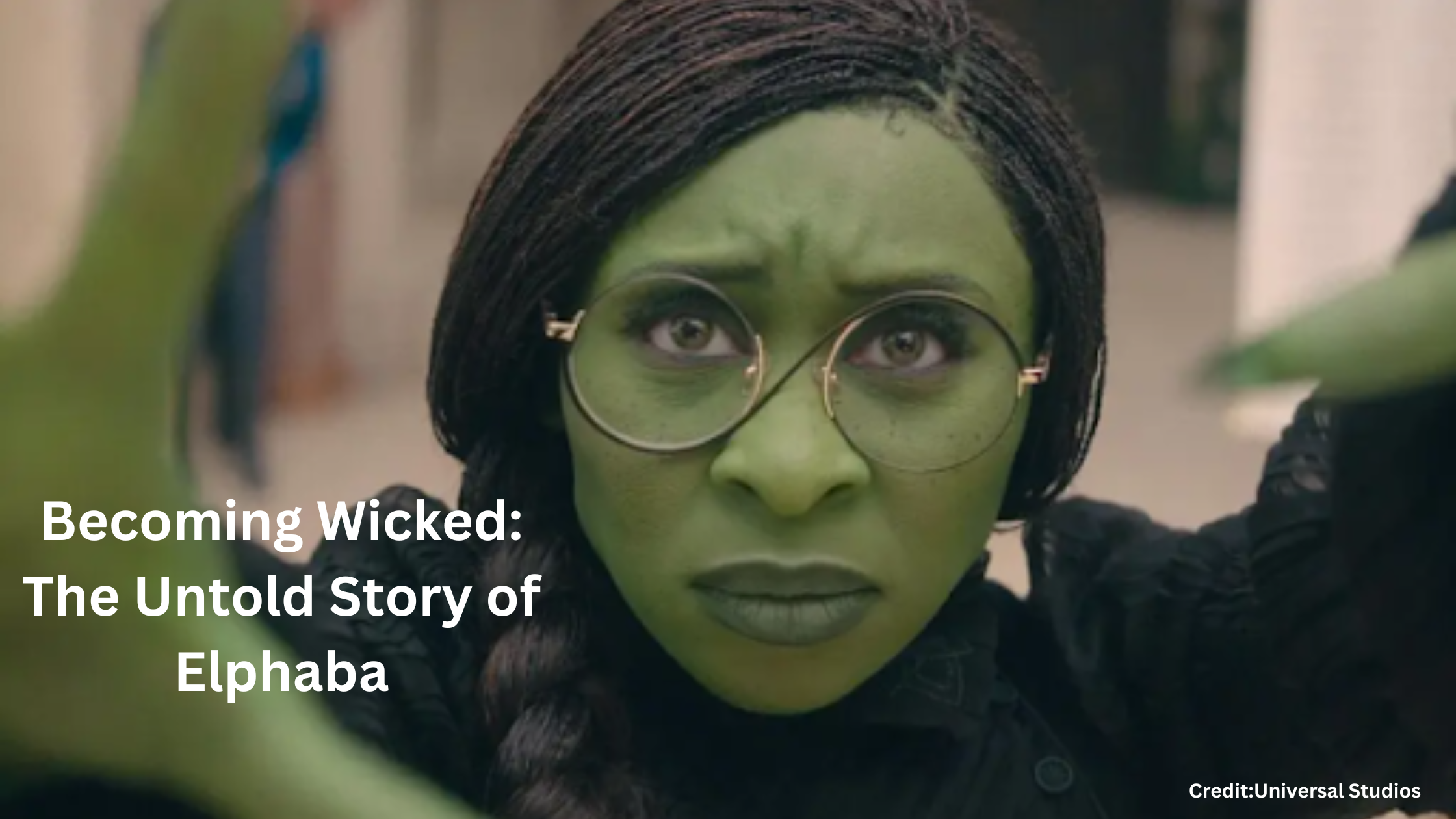Elphaba’s story in Wicked: Part One is one of self-discovery. Branded as “wicked” for refusing to conform, she challenges what it means to be misunderstood and mislabeled. Her journey is an exploration of identity, justice, and the cost of staying true to oneself. Elphaba is a deeply human figure navigating a world that fears her for being different and makes her feel unworthy.
How Did Elphaba Feel Growing Up Green?
Elphaba doesn’t start as the “wicked” figure we know from The Wizard of Oz. From the moment she’s born, her green skin makes her a target for rejection, not just by strangers but by her own family. Her father’s cold dismissal—“It’s no wonder no one can stand the sight of you”—hangs over her like a dark cloud. Her feelings of being unworthy begin here, planted by the rejection of the very people meant to love and accept her. Elphaba internalizes this, growing up believing she is inherently flawed—a burden to everyone around her.

When she arrives at Shiz University, things don’t exactly improve. Her classmates mock her relentlessly with taunts like, “Look who’s trying to fit in!” Even so, Elphaba quickly stands out—not for her looks, but for her brilliance and sheer magical talent. She’s not just smart; she’s extraordinary. And for the first time, someone notices. Madame Morrible, Shiz’s magic instructor, tells her, “With the proper guidance, you could be extraordinary.” For Elphaba, this feels like a lifeline—a chance to finally prove she’s more than what people see on the surface and to show she is worthy.
Yet, even with Madame Morrible’s recognition, doubt gnaws at her. Could she ever truly be “extraordinary” when she has spent her entire life being told she’s not enough? Elphaba works not just to succeed but to justify her existence, as though proving her worth is the only way to silence her insecurities. But that need to prove herself runs deep, and it comes with a heavy cost. Being different might give her power, but it also isolates her even more.
Did Elphaba Have Unexpected Allies?
If there’s one bright spot in Elphaba’s life, it’s her friendship with Glinda. Their relationship is as complicated as it is transformative. They start as opposites—Glinda, with her bubbly charm and effortless lifestyle, and Elphaba, with her sharp wit and intense focus. At first, they can’t stand each other but form a deeper bond over time despite initial appearances.

Glinda is one of the few people who truly sees Elphaba for who she is. And Elphaba, for all her walls, lets Glinda in. But even in this relationship, Elphaba wrestles with feelings of inadequacy, questioning why someone as beloved as Glinda would care for someone like her. She yearns for connection but fears rejection, keeping part of herself hidden even from her closest friend, making her feel unworthy of such affection.
How Did She Defy the Norm?
Elphaba’s fire ignites when she starts seeing the truth about Oz. At first, she’s dazzled by the idea of meeting the Wizard. She believes he will help her make a difference. But when she learns the dark reality—that he’s exploiting and silencing talking animals—her disillusionment is gut-wrenching. “I trusted you,” she says, “but you’re nothing but a fraud!”
This is the moment Elphaba chooses to stand on her own. She’s not going to play by the rules anymore, and that’s when we get Defying Gravity, her ultimate declaration of independence. “I’m through accepting limits ‘cause someone says they’re so,” she belts. She’s flying—literally and metaphorically—and for the first time, she’s unapologetically herself, recognizing her own worthiness.
But breaking free from the system has its downsides. As much as she wants to be a force for good, Oz’s propaganda machine spins her into a villain. She becomes “wicked” not because of what she does but because of how the world chooses to see her.
What Does It Mean To Be Wicked?
What’s striking about Elphaba’s story is how much of her “wickedness” isn’t about her actions but how others perceive her. She fights for what’s right, but she doesn’t fit Oz’s mold of what a hero should look like. So, the people decide that she must be evil. “They’ll call me wicked,” she says, “but I know who I am. I am worthy.”
Her green skin, defiance, refusal to conform—all of it makes her a target. But instead of letting it break her, she leans into it. If the world calls her wicked, she’ll own it. This choice is empowering but also isolating. Elphaba becomes a symbol of rebellion but loses so much of herself in the process.
Resilience and Redemption

By the end of Wicked: Part One, Elphaba’s journey is both triumphant and tragic. She has taken a stand against the Wizard, choosing to fight for the freedom of the talking animals and defy Oz’s corrupt system. But her actions have cast her as a villain in the eyes of the public, and she is forced to go into hiding.
Elphaba’s journey in Part One reminds us that being true to oneself isn’t always easy. Sometimes, doing the right thing means walking a lonely road. Her resilience in the face of these challenges underscores the complexity of her character—one who is neither purely good nor evil. Her story shows that true worthiness comes from self-acceptance and resilience.
Therapy With a Cinematic Approach
Movies have a way of capturing emotions, experiences, and struggles that can be hard to put into words. At Calming Transformations Counseling, our therapists understand how these challenges can affect your emotional and mental well-being. We use cinema therapy to help clients connect with stories that mirror their journeys, offering fresh perspectives and deeper self-understanding. By exploring characters, themes, and emotions on screen, we create a space for reflection, healing, and personal growth—because sometimes, the right film can say what you’ve been feeling all along.
Contact us here.
